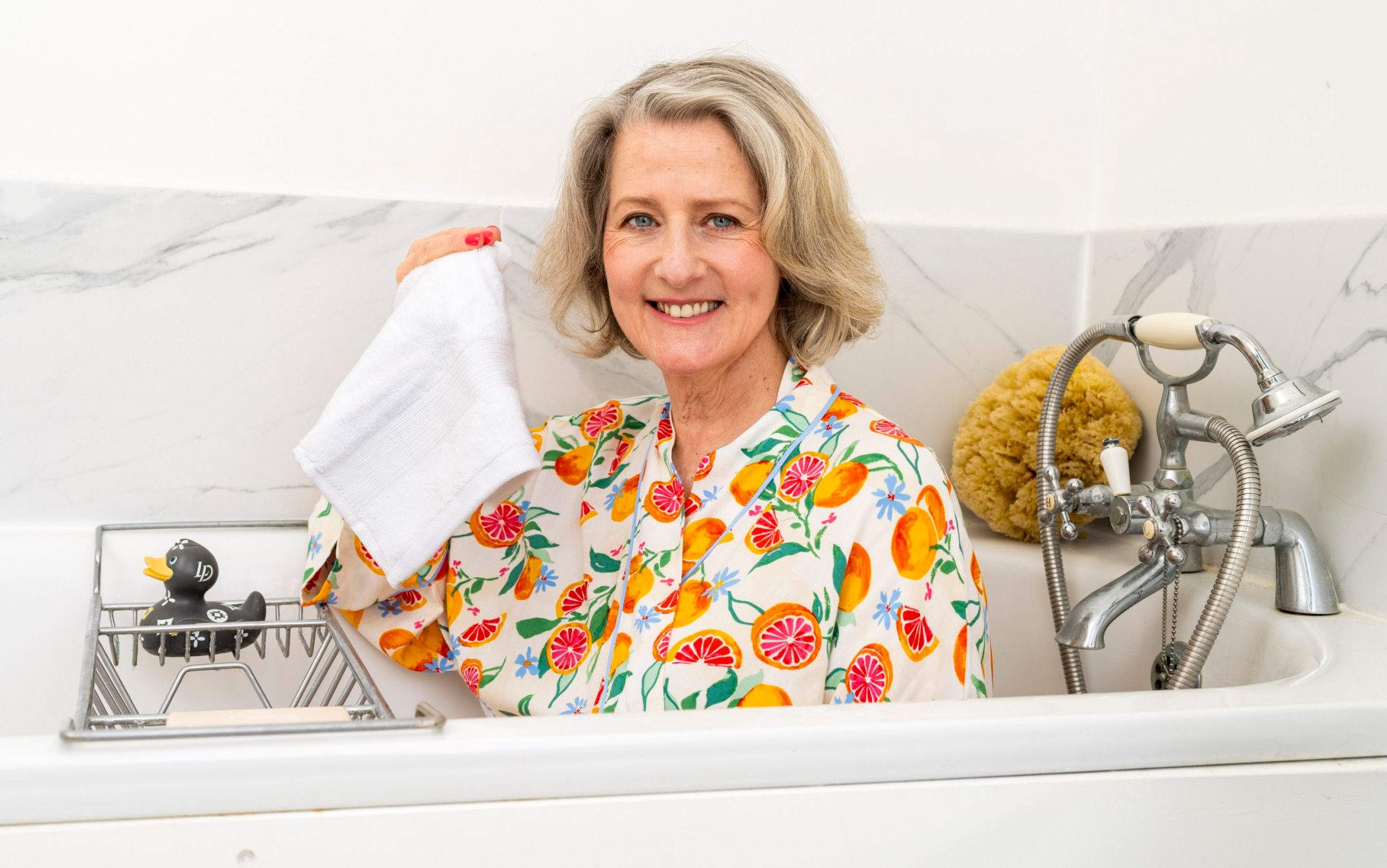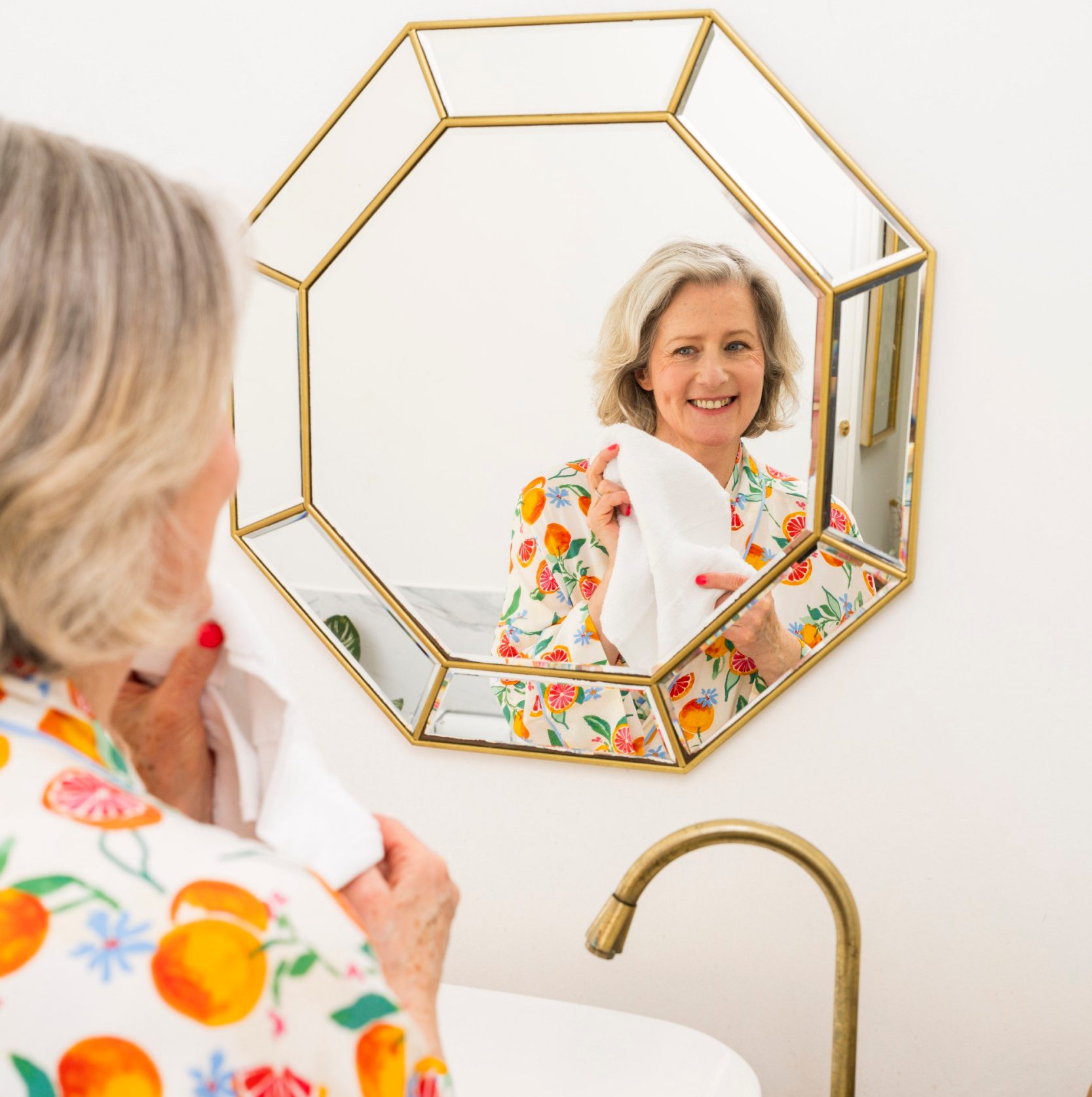
I don’t wash much and I’m pretty certain I don’t smell.
When I say I don’t wash, I’m talking about my body – not my clothes. They are scrupulously laundered; I just don’t see the need to subject my body to the same regime. Largely because the clothes cover it.
, only when I wash my hair, which at the most is twice a week.
On a normal day I’ll do a quick flannel flick of the key areas (underarms and lower zone, soap on the first, not the latter). In summer, when necessary, the feet get a sluice under the bath tap.
Once or twice a week, I’ll have a bath – but for the sheer pleasure of soaking gym-worked muscles in Epsom salts and listening to an audio book, not to get “clean”, because I’m not a miner, a rugby player, or an 18th-century turnip farmer.
I’m not ever covered in physical dirt; in fact, I can’t remember the last time I had any visible muck on my skin, apart from hands after gardening – so why would I lather it up with sweet-smelling washing up liquid? Which is what body washes and shower gels are.
Why do we all think we need to have these daily hot foaming showers? It’s certainly a relatively recent change in social norms in this country.
– with the daily flannel wash keeping things perfectly fresh in between.
We need to go back to that flannel idea. For lots of reasons.
And being a similar kind of finely balanced set-up, the skin microbiome doesn’t flourish when repeatedly washed off with petrochemical-based detergents any more than the gut one enjoys an onslaught of antibiotics.
There are other things our two microbiomes have in common. Both are made up of a mixture of microorganisms – bacteria, viruses and fungi, some beneficial, some not – and everyone’s combo is unique to them.
Like the gut microbiome, the one on our skin is a part of the immune system – indeed the two of them work in that system together, connected through the body’s network of cells and signalling molecules.
We live in a symbiotic relationship with the viruses and bacteria on our skin
do.
As Dr Robert H. Shmerling, the senior faculty editor at Harvard Health Publishing, explains: “Our immune systems need a certain amount of stimulation by normal microorganisms, dirt, and other environmental exposures in order to create protective antibodies and ‘immune memory’.
.”
Too much washing with harsh detergents and factory soaps also strips out the skin’s natural oils (those made from all-natural ingredients aren’t so bad).
So we wash these precious emolliating oils off with body washes and shower gels, which are mostly water packaged in single-use plastic containers, and then put them back again with body lotions, which are mostly water packaged in single-use plastic containers…
It’s ecologically indefensible, but like so many things that are bad for the environment and general human health, there is a giant industry based around keeping us all convinced that this plastic-packaged double trouble is an essential part of our daily lives and our weekly shop.
It isn’t.
Which is not to say that we should allow our skin to become encrusted with dirt. As a key organ for detoxification, you don’t want it blocked, so if you can see dirt on your skin, you should wash it off – but warm water alone is enough to do this. (Except for hands, I do think you need soap to do a proper job there.)
Dr Teri Greiling, an assistant professor of dermatology and associate director of research at Oregon Health & Science University, puts: “Water is excellent at washing off sweat and dust and the normal lint that we pick up around us every day, [while] soap is really good at pulling oils out of the skin,”
Even if, unlike Prince Andrew, you are a big sweat producer, coming back from exercise stinking (like my husband), warm water is enough. Sweat dissolves in it – and do take note of the word “warm” there. It doesn’t have to be boiling hot.
There’s another reason to cut back on the daily foam and steam fest: money.
According to reports online, averaged out because water charges vary around the country, the cost of a daily 10-minute power-shower session (the typical length of a Brit-sprinkle) is about £1.40. That’s around £500 a year.
Even factoring in my weekly treat bath (which I never fill up high) at a much more reasonable 85p a go, I’m saving £300 a year by not having that daily drench. As my husband follows the same routine as me, we’re saving £600.
That’s a minibreak. Including a nice dinner.

The other thing that’s made me devoted to the non-daily shower routine is the amount of time you save.
I can be fully ready for action in the morning, from bed to front door with full make-up and accessories, in half an hour, having a flannel flick, rather than the full deluge. It’s quite life-changing.
And you don’t have permanently damp bath towels littering the place.
But there is one element that still stops a lot of people from ditching the daily hose down – or perhaps just admitting to it. There is a level of a taboo around not keeping up to the current accepted levels of body washing.
As I discovered when I contacted the two friends, a couple, who inspired me to change my daily ablution habits.
The man in the partnership learnt about the skin microbiome when he was studying biological science at university in the 1960s and hasn’t used soap on any part of his body since. Just water. And his wife followed his lead after they met 20 years later.
They are both committed soap-shirkers but didn’t want to go public about it, lest they are judged and thought odd, even a bit yucky. And in all honesty, I thought twice before writing this article for the same reason.
Well, I can vouch that neither of my friends smells bad, or looks dirty.
at the hairdresser’s once or twice a week. For the necessary bits, we have a bidet and we just use warm water.
“I do wash my hands with soap, that’s the one exception. I’ve got health and safety qualifications from running a café, so I know what’s risky. I’d never touch food without washing my hands.
“We don’t tell people about it, because mostly they don’t understand. We’ve all been brainwashed, because there are massive industries trying to get us to wash ourselves and our hair every day. There were good reasons to improve hygiene in the past, but we’ve taken it too far.”
So perhaps there are more of us out there, secretly wielding our 1950s flannels every morning, just not willing to go public about it. Well, I’ve come out now: I don’t shower every day – and I hope it will make others consider giving it a try.
As the very sensible Dr Shmerling says, “Over-cleaning your body is probably not a compelling health issue, however daily showers do not improve your health and they waste a lot of water.”
Changing your washing habits back to what the vast majority of Brits did until at least the mid-1970s will lessen single-use plastic waste, support your immune system, and save time, water – and money.
Not showering daily is a clean winner.


Post a Comment
0Comments